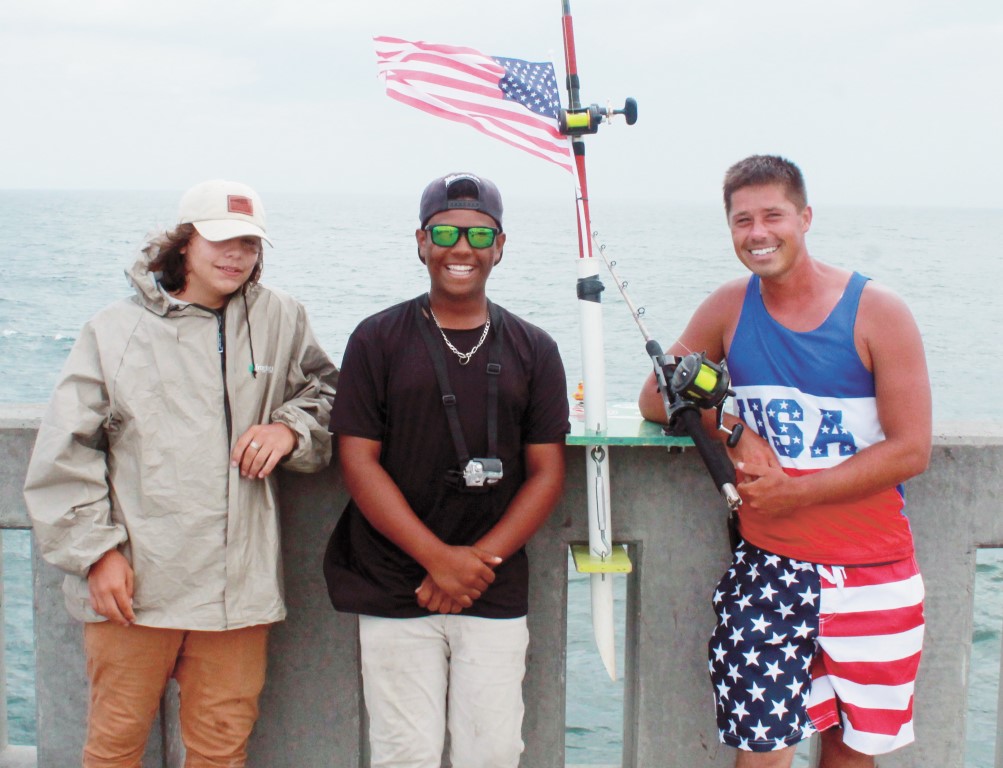At the heart of a recent local media headline that played to people’s fears about a misunderstood creature of the sea is the story of an aspiring young scientist who helped advance the study of sharks.
“There was no shark attack on Wrightsville Beach,” said 15-year old Joey Jacobs, who tagged the shark for tracking by the National Oceanic and Atmospheric Administration, inspired by his interest in marine biology. “I wouldn’t even call it a bite. It was more of a mishandling.”
It is accurate that a man was bitten by a 7-foot Tiger shark on Thursday, June 29 by Johnnie Mercer’s Pier in Wrightsville Beach. But those there said the incident was not an act of aggression by the shark, that the media coverage sent the wrong message about sharks and neglected the scientific purpose behind the encounter.
After the shark was hooked on Thursday, Jacobs wanted an opportunity to apply tags he requested from NOAA. The young fishermen knew there would be plenty of opportunities, as sharks are often caught by anglers at the pier casting for bigger game fish like king mackerel and cobia.
Jacobs said he was helped by several fellow anglers on the pier. They walked the tiger shark, which he said measured 6-foot, 2-inches to the tail fork, down to the shallower water by the shore.
The friend who was bitten was in about waist deep water when the shark snapped around and bit his arm, said Jacobs, adding that the animal’s actions were expected under those circumstances. Anglers at the pier declined to identify the man who was bitten, however, he was at the pier with the other fishermen on July 4, though he did need several stitches.
“He was just a little too deep, which is a no-no” Jacobs said.
But the bite didn’t stop the operation. They dragged the shark to shore using a rope around its tail, where they applied the tag to its dorsal fin after friends Gio Malacara and Rob Kimball helped wrangle the shark.
The tags will be used by NOAA to track the shark if it is ever caught by another fishing or research vessel. In that event, Jacobs will be notified by NOAA.
Jacobs said that regrettably, the biting incident will probably curtail and future attempts to tag a shark from the pier. But it has done nothing to dampen Jacobs’ interest in marine life. The homeschooled student said it’s his ambitious to become a marine biologist and study sharks.
He said he was upset with local media coverage of the event, which he said focused too much on the bite and feed into people’s fear of the animal.
“They get a bad rap,” he said. “This whole thing was blown out of proportion.”
Email [email protected]




